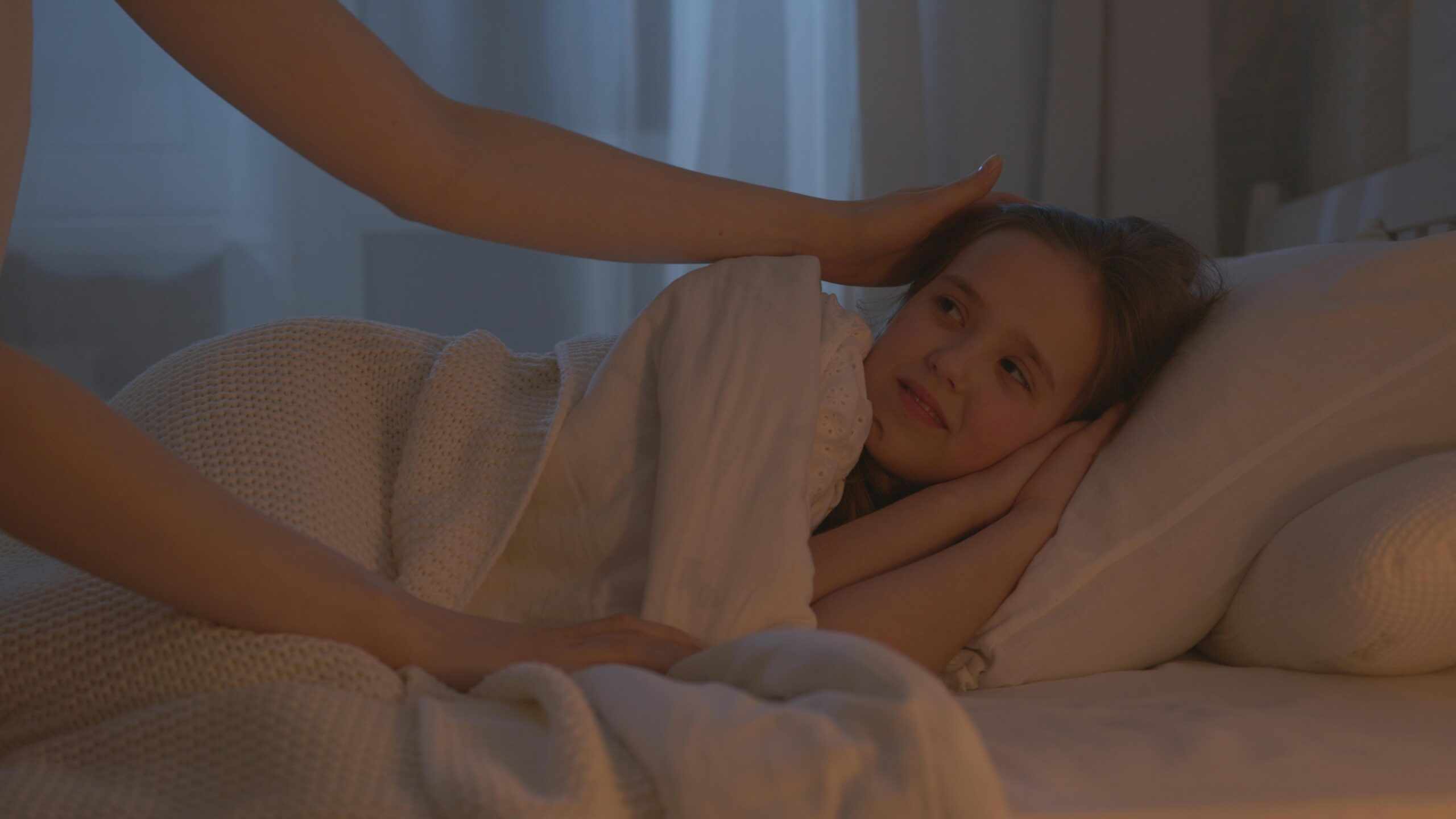Are you tired of restless nights and endless tossing and turning? Discover the secrets of becoming your own sleep guardian! In today’s fast-paced world, sleep often takes a backseat, but it’s crucial for our overall health and well-being. Did you know that a good night’s sleep can boost your mood and enhance productivity? With so many people struggling with insomnia and other sleep disorders, finding effective solutions is more important than ever. Imagine waking up refreshed and ready to conquer the day—sounds amazing, right? In this article, we will delve into proven strategies to improve your sleep quality. From creating the perfect bedtime routine to exploring the latest trends in sleep technology, we’ve got you covered. Are you ready to transform your nights into a serene oasis of rest? Let’s unlock the secrets of your inner sleep guardian and reclaim those precious hours of slumber. Don’t let another sleepless night pass you by—your journey to better sleep starts now! Keep reading to learn how to embrace techniques that nurture your body and mind for the restful nights you deserve!
10 Proven Strategies to Transform Your Sleep Routine with Sleep Guardian Techniques
In today’s fast-paced world, sleep has become a luxury rather than a necessity. Many people struggles with getting enough rest, leading to various health issues. Enter the concept of the “sleep guardian.” But what does that mean exactly? A sleep guardian refers to any practice, tool, or habit that helps improve the quality of sleep. It’s not just about counting sheep anymore!
The Importance of Sleep
Sleep is crucial for our overall health, and without it, our bodies can’t function properly. Here’s some reasons why sleep is important:
- Physical Health: Sleep helps repair your heart and blood vessels. It plays a key role in your body’s ability to heal and recover.
- Mental Wellbeing: Lack of sleep can lead to mood swings, anxiety, and depression. Good sleep can improve your mood and cognitive function.
- Performance: Whether you’re at work or in sports, sleep helps improve focus and performance. It’s essential for memory consolidation.
Historical Context of Sleep Guardians
The term “sleep guardian” has evolved over time. From ancient civilizations that relied on rituals for a good night’s sleep to modern technology, the concept has changed.
- Ancient Egypt: They used to create sleep chambers, and some even believed in gods who were protectors of sleep.
- Middle Ages: People often slept in shifts, which was practical. They sometimes had night watchmen to keep them safe while they slept.
- Modern Era: Now, we have sleep aids, apps, and devices designed to track and improve sleep quality.
Tools and Practices for Better Sleep
There are many strategies and tools people can use to become their own sleep guardians. Here’s a list of options:
-
Sleep Aids:
- Melatonin supplements
- Herbal teas, like chamomile
- Essential oils, like lavender
-
Sleep Hygiene Practices:
- Keeping a consistent sleep schedule
- Creating a comfortable sleep environment (cool, dark, and quiet)
- Limiting screen time before bed
-
Technology:
- Sleep tracking apps (e.g., Sleep Cycle, Calm)
- Smart mattresses that adjust to your sleeping patterns
- White noise machines
Benefits of Being a Sleep Guardian
Becoming a sleep guardian comes with many benefits. Here’s a comparison of life with and without proper sleep practices:
| Feature | Without Sleep Guardians | With Sleep Guardians |
|---|---|---|
| Energy Levels | Low | High |
| Mood | Irritable | Stable |
| Cognitive Function | Impaired | Sharp |
| Health Risks | Higher | Lower |
| Overall Quality of Life | Poor | Improved |
Practical Examples of Sleep Guardian Strategies
To illustrate how you can become your own sleep guardian, here are some practical examples:
-
Bedtime Routine: Establish a calming pre-sleep routine. This could be reading a book, taking a warm bath, or practicing meditation. Avoid screens!
-
Sleep Environment: Invest in blackout curtains or a comfortable mattress. This can create an ideal sleep sanctuary.
-
Mindfulness Practices: Engage in mindfulness or yoga to reduce stress levels. Lower stress helps improve sleep quality.
The Role of Nutrition
What you eat can also affect your sleep. Here’s a quick rundown of foods that can help or hinder sleep:
-
Foods that promote sleep:
- Almonds: High in magnesium
- Kiwi: Contains serotonin
- Turkey: Contains tryptophan
-
Foods to avoid before bed:
- Caffeine: Found in coffee, soda, and chocolate
- Heavy meals: Can cause discomfort
- Alcohol: Might help you fall asleep but disrupts sleep cycles
Being aware of these food choices can also act as a form of sleep guardian.
So, as you can see, the idea of a sleep guardian isn’t just fluffy talk—it’s about adopting methods and tools that can genuinely enhance the quality of your sleep. Whether you prefer using natural remedies, technology, or simple changes in your daily routine, taking steps towards better sleep can make a world of difference. Prioritize your sleep, and you might just find that your waking life improves too!
How Sleep Guardian Can Help You Overcome Insomnia: Real-Life Success Stories
Sleep is essential for our overall health and well-being. Yet, many people struggle to achieve a good night’s rest. Enter the concept of a “sleep guardian.” This term, while not widely recognized, serves as an essential metaphor for various tools, practices, and strategies aimed at improving sleep quality. In this article, we explore what a sleep guardian means, how to identify yours, and ways to enhance your nightly slumber.
What is a Sleep Guardian?
A sleep guardian can be anything or anyone that helps you sleep better. It could be your bedtime routine, a cozy environment, or even technology that monitors your sleep patterns. The term embodies the idea of protection against factors that disturb sleep, such as stress, noise, or discomfort. Historically, humans have always seeked ways to ensure restful sleep. From ancient rituals to modern sleep aids, the journey towards better sleep has evolved dramatically.
Common Sleep Disruptors
Identifying what disrupts our sleep is crucial to finding our personal sleep guardian. Here are some common culprits:
- Stress and Anxiety: Worrying about the next day can keep the mind racing.
- Caffeine and Alcohol: These substances might seem like a good idea, but they can disrupt sleep cycles.
- Screen Time: Blue light from phones and computers can trick the brain into thinking it’s daytime.
- Noise and Light: A loud environment or bright lights can make it hard to fall asleep.
- Uncomfortable Sleeping Conditions: An old mattress or unsuitable pillows can affect sleep quality.
Finding Your Sleep Guardian
Finding your sleep guardian involves a mix of personal reflection and experimentation. It’s about discovering what helps you unwind and feel ready for sleep. Here are some suggestions to get you started:
- Create a Sleep Schedule: Going to bed and waking up at the same time each day can regulate your body’s internal clock.
- Design Your Sleep Environment: Make sure your bedroom is dark, quiet, and cool. Consider blackout curtains or white noise machines if needed.
- Establish a Relaxing Pre-Sleep Routine: Engage in calming activities before bed, such as reading, meditating, or gentle stretches.
- Limit Screen Time: Try to turn off electronics at least an hour before you go to sleep.
- Use Sleep Aids Wisely: Herbal teas, essential oils, or sleep masks might help some people relax.
The Role of Technology in Sleep
In recent years, technology has become a big part of our lives, including how we sleep. Sleep trackers and apps can act as a sleep guardian by providing insights into your sleep patterns. These tools can help identify habits that might be affecting your sleep. Here’s a quick look at what tech can do:
- Sleep Trackers: Devices that monitor your sleep stages, movements, and even heart rate.
- White Noise Machines: These help drown out background noise, creating a more peaceful sleep environment.
- Sleep Apps: Apps that guide you through relaxation exercises or track your sleep patterns.
Natural Sleep Remedies
Some prefer natural methods for improving sleep. Here is a list of popular remedies that can act as your sleep guardian:
- Chamomile Tea: Known for its calming properties, it might help to soothe you before bed.
- Lavender: The scent of lavender is often used in aromatherapy to promote relaxation.
- Melatonin: A hormone that regulates sleep-wake cycles, supplements may help some individuals fall asleep faster.
- Valerian Root: An herbal supplement that has been used for centuries to promote sleep and reduce anxiety.
How to Assess Your Sleep Quality
Monitoring your sleep quality is essential for understanding whether your sleep guardian is effective. Here are some tips to assess it:
- Track Sleep Duration: Aim for 7-9 hours of sleep per night for optimal health.
- Note Sleep Interruptions: Record how many times you wake up during the night and how long it takes to fall back asleep.
- Rate Your Sleep Quality: On a scale from 1 to 10, how rested do you feel when you wake up?
Quick Tips for Better Sleep
- Avoid heavy meals late at night.
- Keep your bedroom for sleep and intimacy only, not work or entertainment.
- Refresh your bedroom decor to create a calming atmosphere.
Ultimately, the journey to better sleep is personal. Your ideal sleep guardian may not look like someone else’s. It’s about understanding your own needs and making adjustments accordingly. By embracing these strategies, you can create a conducive environment for restful sleep and wake up feeling rejuvenated.
The Science Behind Sleep Guardian: Understanding the Biology of Perfect Rest
In a world where sleep often takes a backseat to the demands of daily life, the concept of a “sleep guardian” emerges as a beacon of hope. Have you ever found yourself tossing and turning at night, desperate for a good night’s rest? Many people faces these struggles, leading to increased interest in how to protect and promote better sleep. A sleep guardian is not just a whimsical idea; it is a concept that encompasses various tools, practices, and even technologies aimed at shielding our slumbers from disturbances.
What is a Sleep Guardian?
A sleep guardian can be seen as anything that helps in improving and maintaining the quality of sleep. It can include natural remedies, sleep hygiene practices, or even advanced sleep tech. In essence, its what people use to ensure that they get the restorative sleep they need.
Some common elements of a sleep guardian are:
- Sleep Environment: The setting where one sleeps, which should be dark, cool, and quiet.
- Sleep Hygiene: Habits and practices that promote better sleep, like a consistent sleep schedule.
- Sleep Aids: Products or supplements that help induce sleep, like melatonin or herbal teas.
- Technology: Gadgets that track sleep patterns and offer insights, such as sleep apps or smart beds.
The Importance of Sleep
Sleep is vital for several reasons. Lack of it can lead to various health issues, both mental and physical. Here are some important points:
- Cognitive Function: Sleep improves memory and learning capabilities, which is crucial for adults and children alike.
- Emotional Regulation: Good sleep helps in managing stress and mood swings better.
- Physical Health: It plays a role in immune function, metabolism, and cardiovascular health.
People often underestimate the impact of sleep on their lives, but it’s crucial to understand that without adequate rest, other aspects of life can suffer.
Historical Context of Sleep Practices
Throughout history, cultures have had different approaches to sleep. Ancient Egyptians valued sleep so much that they would use sleep temples, where people could go to rest and recover. In contrast, during the Industrial Revolution, sleep became less prioritized as work hours extended. This shift led to a rise in sleep disorders and related health problems.
In modern times, the understanding of sleep has evolved. Researchers and scientists have begun to advocate for better sleep practices, and the sleep industry has grown tremendously. Sleep aids have become popular, with many people relying on them to achieve the coveted eight hours of rest.
Practical Tips for Becoming Your Own Sleep Guardian
Even if you don’t have fancy gadgets or remedies, there are several things you can do to become your own sleep guardian. Here’s a list of practical tips:
- Create a Sleep Schedule: Go to bed and wake up at the same time every day, even on weekends.
- Limit Screen Time: Avoid screens an hour before sleeping to help your brain wind down.
- Optimize Your Sleep Environment: Make sure your bedroom is dark, cool, and quiet. Consider blackout curtains and white noise machines.
- Watch Your Diet: Avoid caffeine and heavy meals close to bedtime. Opt for light snacks if you’re hungry.
- Engage in Relaxation Techniques: Try meditation, deep breathing, or gentle yoga to prepare your mind for sleep.
Comparing Sleep Techniques and Aids
Here’s a quick comparison of different sleep techniques and aids available today:
| Method | Description | Pros | Cons |
|---|---|---|---|
| Sleep Hygiene | Consistent routines and practices | Generally safe and effective | Requires self-discipline |
| Herbal Remedies | Natural sleep aids like chamomile | Fewer side effects | Effects may vary by person |
| Melatonin Supplements | Hormonal sleep aids | Can be effective in short-term | Long-term effects not well-studied |
| Sleep Tracking Tech | Apps and wearable devices | Provides insights on sleep | Can be invasive or inaccurate |
Real Life Examples of Sleep Guardians
Many people have shared their experiences in adopting sleep guardianship into their lives. For instance, a busy professional might find that using a white noise machine helps drown out city sounds. Alternatively, a student might swear by a consistent bedtime routine of reading a book to signal their brain that it’s time for sleep.
In a recent survey, about 63% of individuals who tried creating a better sleep environment reported improved sleep quality. This shows that even simple changes can make a big difference.
Ultimately, being your own sleep guardian means taking responsibility for your sleep health. With a few thoughtful adjustments and an understanding of sleep’s importance, anyone can improve their sleep quality dramatically. Whether you turn to technology or natural methods, the key is finding what works for you and committing to it. Sleep well, and you may find that the
5 Essential Sleep Guardian Tools You Need for a Night of Uninterrupted Sleep
In today’s fast-paced world, sleep often take a backseat in our lives. But what if there were a way to protect and enhance your sleep quality? Enter the concept of the “sleep guardian.” This term refers to various practices, tools, or even methods that help individuals to improve their sleep habits and ensure they get the restful slumber they deserve.
What is a Sleep Guardian?
A sleep guardian is not a singular entity, it could be a combination of things. It can be a gadget, an app, or even a routine that helps you to achieve better sleep. The idea is to create an environment or a set of habits that promotes restorative sleep. Some common sleep guardians include:
- Sleep Apps: These apps can track your sleep patterns or provide soothing sounds to help you fall asleep.
- Sleep Masks: They block out light, creating a dark environment which is essential for good sleep.
- White Noise Machines: These devices create consistent sound to mask background noise, promoting a calming atmosphere.
- Mattresses and Pillows: Quality sleep furniture is important, as they can provide the necessary support for your body.
Historical Context of Sleep Guardians
The importance of sleep is not a new concept. Historically, cultures around the world have recognized the need for proper rest. Ancient Egyptians used to sleep on reeds, while in ancient Greece, people would often use olive oil lamps to create a calming atmosphere for sleeping.
In the 20th century, sleep science began to gain ground. Researchers started to study the effects of sleep on health and well-being. The idea of sleep guardians evolved as people began to understand how certain habits and environments can significantly influence sleep.
The Science Behind Sleep
Understanding the science behind sleep is essential for recognizing how sleep guardians work. Sleep consists of several stages, including REM (Rapid Eye Movement) and non-REM sleep. Each stage plays a role in physical and mental restoration.
- Stage 1: Light sleep, transition into sleep.
- Stage 2: Slightly deeper sleep, body temperature drops.
- Stage 3: Deep sleep, essential for physical recovery.
- REM Sleep: Important for memory and learning.
Practical Sleep Guardian Techniques
Here are some practical methods that can serve as your personal sleep guardians:
-
Establish a Sleep Routine: Going to bed and waking up at the same time every day helps regulate your body’s clock.
-
Limit Screen Time: The blue light emitted from screens can interfere with melatonin production, making it harder to sleep.
-
Create a Comfortable Environment: Keep your room cool, dark, and quiet. Consider using blackout curtains or earplugs.
-
Mindfulness and Relaxation Techniques: Practices such as meditation or deep breathing can help calm your mind before bed.
-
Avoid Heavy Meals and Caffeine: Eating large meals or consuming caffeine before bed can disrupt your sleep cycle.
Comparing Sleep Guardians
When choosing sleep guardians, it might be helpful to compare them to see what works best for you. Here’s a simple comparison of different types of sleep guardians:
| Type | Pros | Cons |
|---|---|---|
| Sleep Apps | Easy to use, many features | Can be distracting if overused |
| Sleep Masks | Blocks out light | May feel uncomfortable for some |
| White Noise Machines | Masks background noise | May not work for everyone |
| Quality Mattresses/Pillows | Provides necessary support | Can be expensive |
Final Thoughts
Incorporating sleep guardians into your nightly routine can significantly enhance your sleep quality. It’s about finding what works for you, whether it’s through technology or simple changes in your habits. As you strive to become your own sleep guardian, remember that it’s okay to make adjustments along the way. Everyone’s sleep needs are different, so don’t hesitate to explore various options until you find the perfect mix that helps you sleep soundly. Embrace your journey to better sleep and discover the benefits of being well-rested.
Is Sleep Guardian Right for You? Take This Quiz to Find Out Your Sleep Style
Sleep is a crucial part of our lives, yet many of us struggle to get sufficient rest. With the rise of technology and busy lifestyles, the concept of a “sleep guardian” has emerged. This term refers to various tools and strategies designed to help improve sleep quality and promote better rest. In a world where insomnia and sleep disturbances are common, understanding and utilizing sleep guardians can be vital for maintaining overall health.
What is a Sleep Guardian?
A sleep guardian can be anything that helps you achieve a better night’s sleep. It can be products, practices, or even lifestyle changes that promote restful slumber. Some examples include:
- Sleep apps: These apps tracks your sleep patterns and provide insights to improve them.
- White noise machines: They masks disruptive sounds that might wake you up.
- Essential oils: Aromatherapy can create a calming environment for sleep.
- Comfortable mattresses: A good mattress is essential for proper support and comfort.
Historical Context of Sleep Guardians
The importance of sleep has long been recognized throughout history. Ancient cultures, like the Greeks and Romans, valued sleep as a restorative process. They believed various deities were responsible for dreams and sleep. For example, Hypnos was the Greek god of sleep, and people offered prayers to him for peaceful rest.
Fast forward to more modern times, during the Industrial Revolution, sleep patterns began to change dramatically. With factories operating longer hours, many people struggled to maintain good sleep hygiene. This lead to a growing awareness of the need for sleep guardians to combat the negative effects of sleep deprivation.
The Science Behind Sleep
Sleep is not just a time for rest; it’s a complex process that plays a vital role in our physical and mental health. Research shows that during sleep, our bodies undergo important repairs and our brains process information. Here are some key points about sleep:
- Sleep cycles: Humans go through multiple cycles of sleep each night, typically lasting around 90 minutes. Each cycle includes stages of light sleep, deep sleep, and REM (Rapid Eye Movement) sleep.
- Sleep deprivation: Lack of adequate sleep can lead to various health problems, such as obesity, heart disease, and weakened immune function.
- Circadian rhythms: This internal clock regulates sleep-wake cycles, and it’s influenced by light exposure and daily routines.
Effective Sleep Guardians You Can Use
Here’s a list of sleep guardians that can help improve your sleep quality:
- Routine: Establishing a consistent sleep schedule helps regulate your body’s internal clock.
- Environment: Create a dark, quiet, and cool bedroom to optimize your sleep environment.
- Limiting screens: Reducing screen time at least an hour before bed can help signal your brain that it’s time to wind down.
- Relaxation techniques: Practices like meditation, yoga, or deep breathing can help calm your mind before sleep.
- Dietary choices: Avoid heavy meals, caffeine, and alcohol close to bedtime, as they can disrupt sleep.
Comparing Sleep Guardians
Not all sleep guardians are created equal. Here’s a simple comparison of some popular sleep aids:
| Sleep Guardian | Pros | Cons |
|---|---|---|
| Sleep Apps | Tracks sleep patterns, provides tips | May require a subscription |
| White Noise Machines | Masks disruptive noises, promotes relaxation | Some may find it annoying |
| Essential Oils | Natural and calming scents | Effectiveness varies per individual |
| Comfortable Mattresses | Provides support and comfort | Can be expensive |
Practical Examples of Sleep Guardians in Action
Imagine you’re struggling to fall asleep. You decided to try a sleep app that analyzes your patterns and recommends a bedtime routine. It suggests winding down with a book instead of scrolling through social media. You follow the advice, turn off your screens, and use a calming lavender essential oil. After a week, you noticed that you fall asleep faster and wake up feeling more refreshed. This is how a sleep guardian can make a difference.
Another example could be someone who uses a white noise machine. Living in a busy city, every night, honking cars and loud neighbors disrupt their sleep. By integrating a white noise machine into their bedtime routine, they find the sounds of nature soothing and relaxing, allowing them to sleep more soundly.
In a world filled with distractions and demands, finding effective sleep guardians is becoming more important. The right combination of products, practices, and lifestyle changes can pave the way for better sleep, ultimately enhancing your overall well-being. With the increasing awareness of sleep’s value, it’s clear that making sleep a priority can lead to a healthier, happier life. Getting good sleep is not just a luxury — it’s a necessity.
Conclusion
In conclusion, the Sleep Guardian emerges as an indispensable tool in the quest for improved sleep quality and overall well-being. By utilizing advanced technology to monitor sleep patterns, it provides personalized insights and recommendations that empower users to make informed adjustments to their bedtime routines. From its ability to track factors like sleep duration and disturbances to offering tailored solutions for enhancing sleep hygiene, the Sleep Guardian addresses common challenges faced by many individuals. Prioritizing sleep is not just about rest; it’s about enhancing productivity, mental clarity, and emotional health. As we increasingly understand the profound impact of quality sleep on our lives, investing in a tool like the Sleep Guardian can be a game-changer. Take charge of your sleep journey today, and explore how the Sleep Guardian can help you achieve the restful nights you deserve, paving the way for brighter days ahead.














